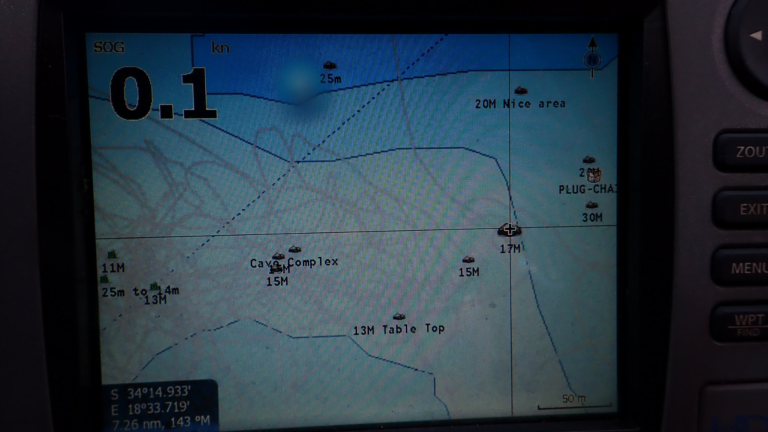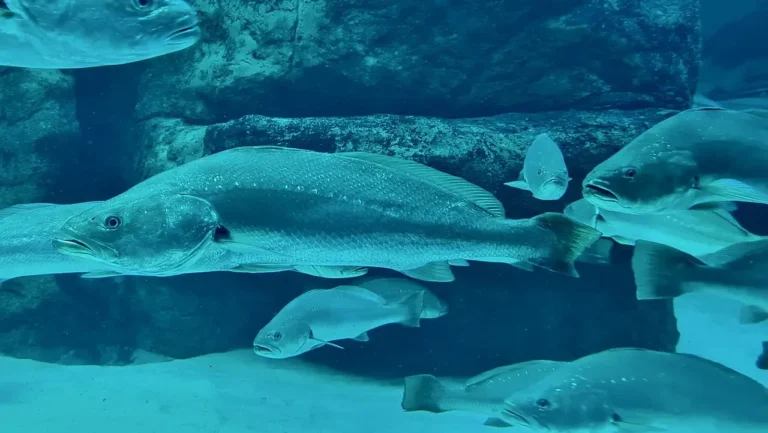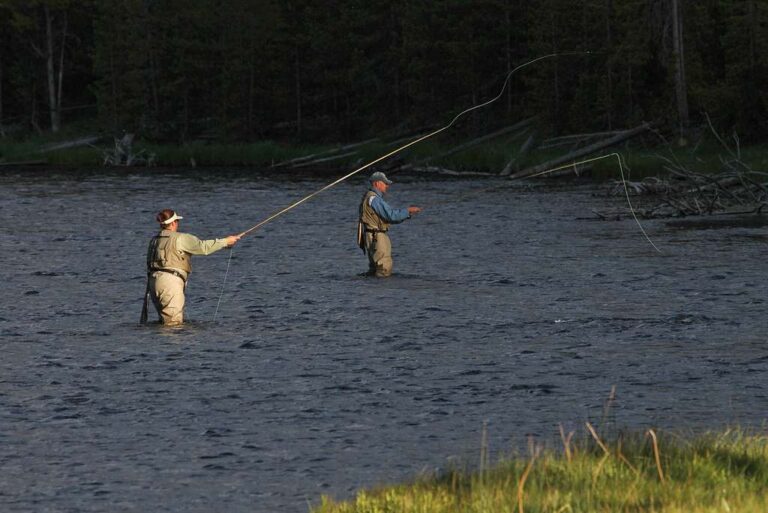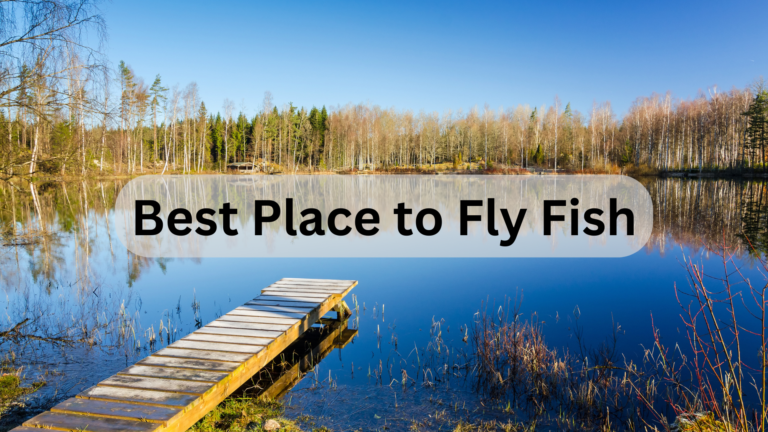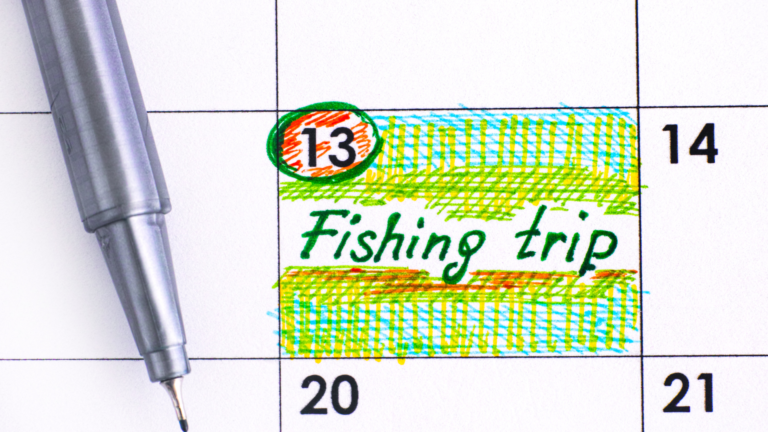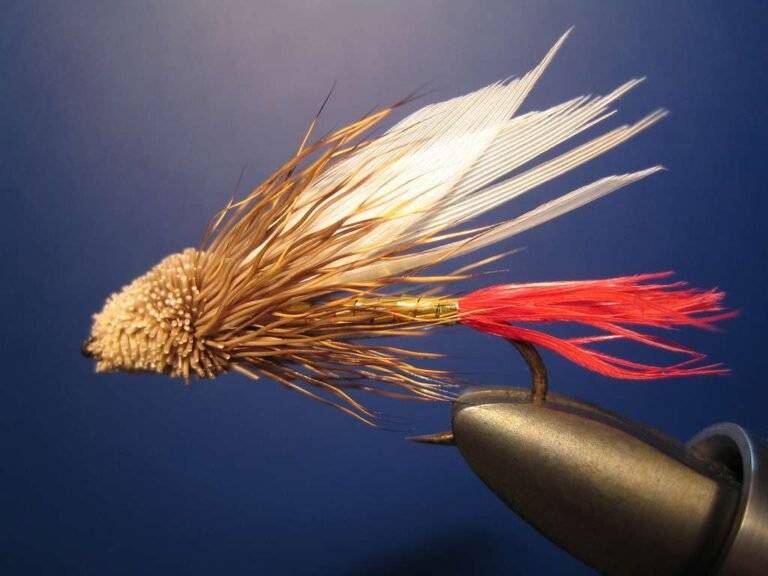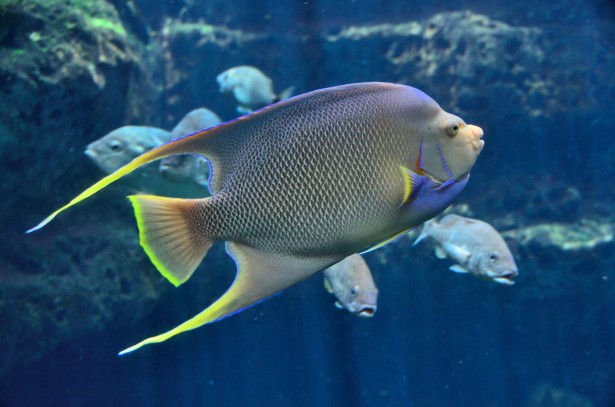Pros And Cons of Fishing: Unveiling the Hidden Realities
PROS AND CONS OF FISHING: UNVEILING THE HIDDEN REALITIES
Fishing offers relaxation and outdoor enjoyment but can harm aquatic ecosystems and lead to overfishing. Fishing provides recreational thrills and a connection to nature, benefiting mental health and promoting physical activity.
On the downside, irresponsible fishing practices can deplete fish populations and damage marine habitats. Understanding the pros and cons of fishing helps balance its enjoyment with the need for sustainability and conservation. Through responsible fishing practices, individuals can enjoy the sport while safeguarding the environment for future generations.
Join us as we delve deeper into the various aspects of fishing, exploring its benefits and challenges from an ecological standpoint.
The Art Of Fishing
Fishing is not just a hobby; it’s an art form that has been practiced for generations. Understanding the history, types of techniques, and the pros and cons is crucial for any fishing enthusiast. Let’s dive into the details.
History And Evolution
Early humans relied on fishing for sustenance, using rudimentary tools. Over time, fishing techniques evolved, leading to the modern sports fishing we know today.
Types Of Fishing Techniques
- Fly Fishing
- Deep-Sea Fishing
- Ice Fishing
- Surf Fishing
Each technique requires specific skills and equipment, offering diverse experiences for anglers.
Pros Of Fishing
Fishing is not only a popular recreational activity but also offers several benefits that make it a worthwhile pursuit. Engaging in fishing can have a positive impact on our well-being as it provides a unique connection with nature, promotes relaxation, and offers a sustainable source of food. Let’s dive into the pros of fishing in detail.
Connection With Nature
Fishing allows us to immerse ourselves in the natural world around us. Spending time near bodies of water, whether it’s a serene lake or a flowing river, enables us to connect with nature in a profound way. We can observe the beauty of the surroundings, witness the diverse aquatic life, and develop a deeper appreciation for the environment. This direct contact with the ecosystem fosters an understanding of ecological balance and the importance of conservation.
Promotes Relaxation And Stress Relief
Fishing is often considered a therapeutic activity that helps us unwind and escape the daily stresses of life. The peacefulness of the surroundings, the rhythmic movement of casting and reeling in, and the undivided attention required can have a calming effect on the mind and body. Engaging in fishing allows us to disconnect from the demands of our everyday lives and find solace in the tranquility of nature. It provides an excellent opportunity to de-stress, rejuvenate, and improve our mental well-being.
Source Of Sustainable Food
Fishing offers more than just a recreational experience; it also serves as a valuable source of sustainable food. With concern for the planet’s resources growing, fishing can be an eco-friendly way to provide nourishment for ourselves and our families. By catching our own fish, we reduce our reliance on commercial fishing and contribute to the conservation of fish stocks. Moreover, it allows us to consume fresh, organic, and healthy seafood, ensuring a nutritious diet.
Cons Of Fishing
Fishing, like any other activity, has its fair share of downsides. While it can be a relaxing and enjoyable pastime, it is crucial to understand the negative impacts it can have on fish populations, the environment, and ethical considerations. In this section, we will explore these cons in greater detail.
Impact On Fish Populations
Fishing activities can significantly affect fish populations, both directly and indirectly. The excessive harvest of fish can disturb the delicate balance of ecosystems, leading to a decline in specific fish species. Overfishing, especially in areas where regulations are not enforced, can deplete fish populations to unsustainable levels. As a result, it becomes harder for fish populations to reproduce and maintain their numbers, which can disrupt the overall marine biodiversity and affect the fish food chain as well.
Environmental Concerns
The act of fishing can have several negative environmental consequences. For instance, the use of certain fishing methods such as trawling can damage the seafloor and other habitats. This method involves dragging huge nets along the ocean floor, which not only captures target fish but also results in unintentional catches of non-target species, known as bycatch. Bycatch can include marine mammals, seabirds, and other types of fish, contributing to species depletion and indirectly harming ecosystems. Additionally, the release of discarded fishing gear, such as nets and hooks, into the water can lead to entanglement of marine life, causing severe injuries or death.
Ethical Issues
Engaging in fishing raises ethical concerns that revolve around the treatment of fish and other living organisms. Some argue that the act of catching fish for sport or recreational purposes is inherently cruel, as it subjects the fish to unnecessary stress and potential harm. Additionally, certain fishing practices, such as catch and release, although aimed at conservation, can also be controversial. While it allows for the fish’s survival after being caught, the stress and injuries they experience during the process may still have long-term effects on their overall well-being. These ethical considerations highlight the need for balance between enjoying the activity of fishing and respecting the welfare of marine life.

Economic Aspects
Fishing, as an economic activity, holds significant importance in various regions around the world. It not only contributes to the livelihoods of many individuals but also impacts local and global economies. However, like any other industry, there are both pros and cons associated with the economic aspects of fishing.
Fishing Industry’s Economic Contribution
The fishing industry plays a vital role in the economic growth and development of coastal communities and countries. Let’s take a closer look at some of the ways in which the fishing industry contributes to the economy:
- The creation of employment opportunities: The fishing industry provides jobs for millions of people worldwide, from fishermen to processing plant workers and distributors. This employment not only sustains individuals and their families but also aids in reducing unemployment rates in coastal areas.
- Boost to tourism: Coastal regions often benefit from fishing-related tourism, such as charter fishing trips and recreational fishing activities. These tourist activities generate revenue and support local businesses, including accommodations, restaurants, and souvenir shops.
- Exports and trade: Many countries heavily rely on fishing as a source of export revenue. Whether it’s fresh seafood, canned products, or fish-related byproducts like fish oil, the fishing industry contributes significantly to international trade, ensuring positive economic balances.
Overfishing And Depletion Of Resources
While the fishing industry brings economic benefits, it is not without its downsides. Overfishing and the depletion of resources are major concerns that have significant economic implications:
- Loss of jobs and income: Overfishing can lead to the decline or collapse of fish stocks. When this happens, fishermen may lose their livelihoods, resulting in job losses and reduced income for coastal communities dependent on fishing as a primary source of income.
- Negative impact on food security: Overfishing threatens the availability of fish as a food source for communities that rely on fish as a staple. This scarcity can drive up prices, making fish less affordable for lower-income populations.
- Disruption of ecosystems: Overfishing can disrupt marine ecosystems, causing imbalances and affecting other species that depend on fish populations. These imbalances have far-reaching economic consequences, as they can impact other sectors like tourism and the overall health of the ocean.
Regulations And Conservation Efforts
Fishing regulations and conservation efforts play a crucial role in managing the sustainability of fish populations and their natural habitats. By establishing fishery management policies and implementing various conservation programs, the fishing industry aims to maintain ecological balance and prevent overexploitation of marine resources.
Fishery Management Policies
The implementation of effective fishery management policies is essential for maintaining healthy fish stocks and preserving aquatic ecosystems. These policies typically include regulations on catch limits, gear restrictions, and seasonal closures to prevent overfishing and protect vulnerable species.
Conservation Programs And Initiatives
- Marine Protected Areas (MPAs) foster the conservation of marine life by safeguarding critical habitats and reducing the impacts of fishing activities within designated zones.
- Stock enhancement programs aim to replenish and enhance fish populations through restocking efforts, habitat restoration, and sustainable aquaculture practices.
- Bycatch reduction initiatives strive to minimize incidental catch of non-target species, thus reducing waste and environmental impacts associated with fishing operations.
Health Benefits And Risks
Nutritional Benefits Of Consuming Fish
- Rich in Omega-3 fatty acids vital for heart health
- High-quality protein source necessary for muscle growth
Health Risks Associated With Contaminated Fish
- Exposure to toxins like mercury can harm the nervous system
- Potential risk of consuming harmful pollutants like PCBs
Fishing can offer nutritional benefits, such as being a rich source of Omega-3 fatty acids essential for heart health. Additionally, fish is a high-quality protein source vital for muscle growth.
However, health risks may arise from contaminated fish. Consumption of toxic substances like mercury can lead to harm to the nervous system. Fish may also contain harmful pollutants like PCBs, posing health hazards.
Cultural Significance
Fishing has been an integral part of human culture for centuries, playing a significant role in societies worldwide. From fishing traditions passed down through generations to its representation in folklore and mythology, this age-old practice holds deep-rooted cultural significance. In this section, we will explore the fascinating connections between fishing and different cultures across the globe.
Fishing Traditions Around The World
Each culture has its unique fishing traditions that reflect its values, beliefs, and way of life. These time-honored practices showcase the ingenuity and adaptability of people when it comes to sustenance and survival.
Let’s delve into some remarkable fishing traditions from different corners of the world:
| Country/Region | Traditional Fishing Method | Key Cultural Significance |
|---|---|---|
| Japan | Ikejime | Ikejime is a technique of immediately killing the fish to preserve its taste and freshness, reflecting the Japanese emphasis on precision and respect for nature. |
| Norway | Tørrfisk/Lutefisk | Tørrfisk/lutefisk is a traditional method of air-drying unsalted fish, showcasing Norway’s historical reliance on dried cod as a staple source of nutrients and trade commodity. |
| Hawaii | Throw Net Fishing | Throw net fishing, known as “hukilau,” is deeply embedded in Hawaiian culture as a communal activity, fostering unity and cooperation among the local communities. |
| India | Chinese Fishing Nets | The Chinese fishing nets in Kerala, India, are a visual testament to the historical maritime trade ties between India and China, serving as a reminder of cultural exchange and diversity. |
Fish In Folklore And Mythology
Fish have a prominent presence in folklore and mythology across various cultures. These aquatic creatures often carry symbolic meanings and are portrayed as characters in captivating tales, weaving together the realms of the natural and supernatural.
Here are some intriguing instances of fish in folklore and mythology:
- The Koi Fish in Japan: Symbolizing perseverance and determination, koi fish are admired for their ability to swim against strong currents. According to Japanese folklore, koi that successfully swim up waterfalls transform into dragons, representing courage and accomplishments.
- The Carp in Chinese Mythology: In Chinese culture, the carp is associated with strength and abundance. A popular legend tells of carps that swim upstream to the Dragon’s Gate, where they transform into dragons, representing success and the fulfillment of aspirations.
- The Fish Avatar (Matsya) in Hinduism: According to Hindu mythology, Lord Vishnu took the form of a fish (Matsya) to save humanity from a catastrophic flood. This sacred fish symbolizes protection, knowledge, and the preservation of life.
- The Salmon of Knowledge in Celtic Folklore: In Celtic mythology, the salmon of knowledge possesses infinite wisdom. By consuming the sacred salmon, the hero Fionn Mac Cumhaill gains extraordinary knowledge, emphasizing the transformative power of acquiring wisdom.
These enthralling cultural narratives surrounding fish beautifully intertwine folklore, mythology, and the reverence for nature.
Future Of Fishing
Fishing has been a vital source of food and income for communities around the world since ancient times. However, as the global population grows and the environmental impact on aquatic ecosystems increases, the future of fishing faces both opportunities and challenges.
Technological Advancements In Fishing
The fishing industry has seen remarkable advancements in technology, with innovations such as GPS navigation systems, fish finders, and electronic monitoring tools enhancing efficiency and productivity. These technological advancements have enabled fishermen to locate fish with greater precision and minimize bycatch, ultimately contributing to more sustainable fishing practices.
Sustainable Practices For Future Generations
In order to ensure that future generations can continue to benefit from abundant marine resources, sustainable fishing practices are imperative. Adhering to scientifically-founded catch limits, implementing marine-protected areas, and promoting responsible fishing gear are paramount to preserving the health of marine ecosystems for the future.

Credit: thatsbelievable.com
Frequently Asked Questions
What Are The Cons Of Fishing?
The cons of fishing include overfishing, harm to marine life, and disturbing ecosystems. It can also contribute to water pollution and negatively impact local fish populations. Additionally, fishing can lead to habitat destruction and disrupt the balance of aquatic environments.
What Is Good About Fishing?
Fishing offers relaxation, enjoyment, and stress relief while connecting with nature. It gives a sense of achievement when catching fish and allows spending quality time with friends and family. Additionally, fishing promotes patience, improves concentration, and helps to develop problem-solving skills.
What Are The Cons Of Catch And Release Fishing?
Cons of catch and release fishing include potential harm to fish’s health, stress, injury, and reduced survival rates.
What Are Some Pros Of Fisheries?
Fisheries provide a valuable food source and support the economy. They create jobs and contribute to the livelihoods of communities. Fisheries also encourage sustainable fishing practices and help to conserve marine biodiversity. Additionally, they contribute to research and education on marine ecosystems.
Conclusion
In all, fishing offers a plethora of benefits, including stress relief, promoting physical well-being, and connecting with nature. However, it also presents challenges such as environmental impact and overfishing. By mindful fishing practices and conservation efforts, we can mitigate the drawbacks and maximize the positive impacts of this timeless activity.


